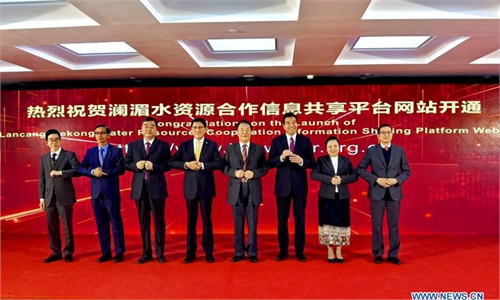
WeChat AliPay Photo: VCG
Data-sharing in some areas between the government and firms is not standard in China, but it is normal in other countries, industry analysts said on Tuesday, shedding some light on the controversy over whether consumer data should be the property of Alibaba Group's fintech offshoot Ant Group or the government or both.
Big data is part of the core competitiveness of an internet firm like Ant, and it is also time-consuming and expensive to run and manage such a big data pool. As a result, cost-free sharing of data assets would be a big sacrifice for such firms, Liu Gang, chief economist with the Chinese Institute of New Generation Artificial Intelligence Development Strategies and director of the Nankai Institute of Economics, told the Global Times on Tuesday.
Nevertheless, it's also necessary to have a clear data-sharing mechanism, both between firms and the government, or relevant departments, so that the whole industry can run effectively and in a healthy way and public interests can be protected, Liu said.
Ant, the operator of Alipay, one of the nation's largest digital payment apps, has lately found itself at the center of a data ownership whirlwind after a Wall Street Journal report on January 5 disclosed that Chinese regulators are pushing for Alibaba founder Jack Ma Yun to share consumer data collected by his fintech company.
The authorities are set to regulate Ant's lending operations in the same way as a bank and are "planning to break what they see as the company's monopoly over data," said the report, citing unnamed officials and government advisers.
Ant might have two options: one would be for its data to be fed into a nationwide credit-report system run by the People's Bank of China (PBC), the country's central bank, and the other would be "for Ant to share such information with a credit-rating company that is effectively controlled by the central bank," the report said.
The credit rating operations of Ant and Tencent Holdings were among eight market entities that partnered with the National Internet Finance Association of China to launch Baihang Credit, the nation's first licensed personal credit agency, in 2018. Neither the PBC nor the banking and insurance regulator have publicly commented on the report. Ant declined to comment when reached by the Global Times on Tuesday.
Top Chinese financial regulatory authorities, including the central bank, had talks with Ant in late December - for the second time in less than two months - in a follow-up to a high-profile antitrust probe into Alibaba.
The regulators pinpointed a raft of major problems with the Alipay operator, such as defiance of regulatory and compliance requirements, and urged rectification of its key businesses as part of the nation's broad efforts to put fintech firms and online platform operators on track for more sustainable innovation. Ant was called on by the regulators to rectify its key businesses. Specifically, the Alipay operator was urged to return to its payment origin, improve trading transparency and prohibit unfair competition practices. The overhaul also requires Ant to be a lawful license holder, operate personal credit services in line with laws and regulations and protect individuals' data privacy.
"The central government is trying to manage that balance in Ant's case - to protect the corporate interests while also ensuring that the public's rights are not harmed," Liu said.
Liu also refuted some foreign media reports that have said the central government will ask Ant Group to "submit all its data assets," noting that the central government would be more likely to seek a balanced sharing mechanism.
Ant and the industry it represents will still be a significant pillar for China's online economy that China will firmly support, observers said, noting that the case will be a good thing for the whole of society and the industry, as well as the future of international data trade.
"The data-sharing scope and boundaries between the government and internet firms have long been a headache, not only in China, but also across the globe," Ma Jihua, a veteran industry analyst, told the Global Times on Tuesday.
"It's impossible that the data problem can be solved once and for all at this time as the industry is still developing rapidly," Ma said.
China, home to the world's largest internet community, unveiled a draft law on personal data protection in October, covering data including race, ethnicity, religion, biometric data, medical and financial data.
Violators of the law could face a fine of up to 50 million yuan ($7.74 million) or 5 percent of the prior year's turnover, the draft law stipulates.
The legislation is seen as putting China on a par with the EU where the General Data Protection Regulation (GDPR) took effect on May 25, 2018. GDPR violations could result in a fine of up to 20 million euros ($24.31 million), or 4 percent of the firm's global annual revenue from the preceding financial year.




